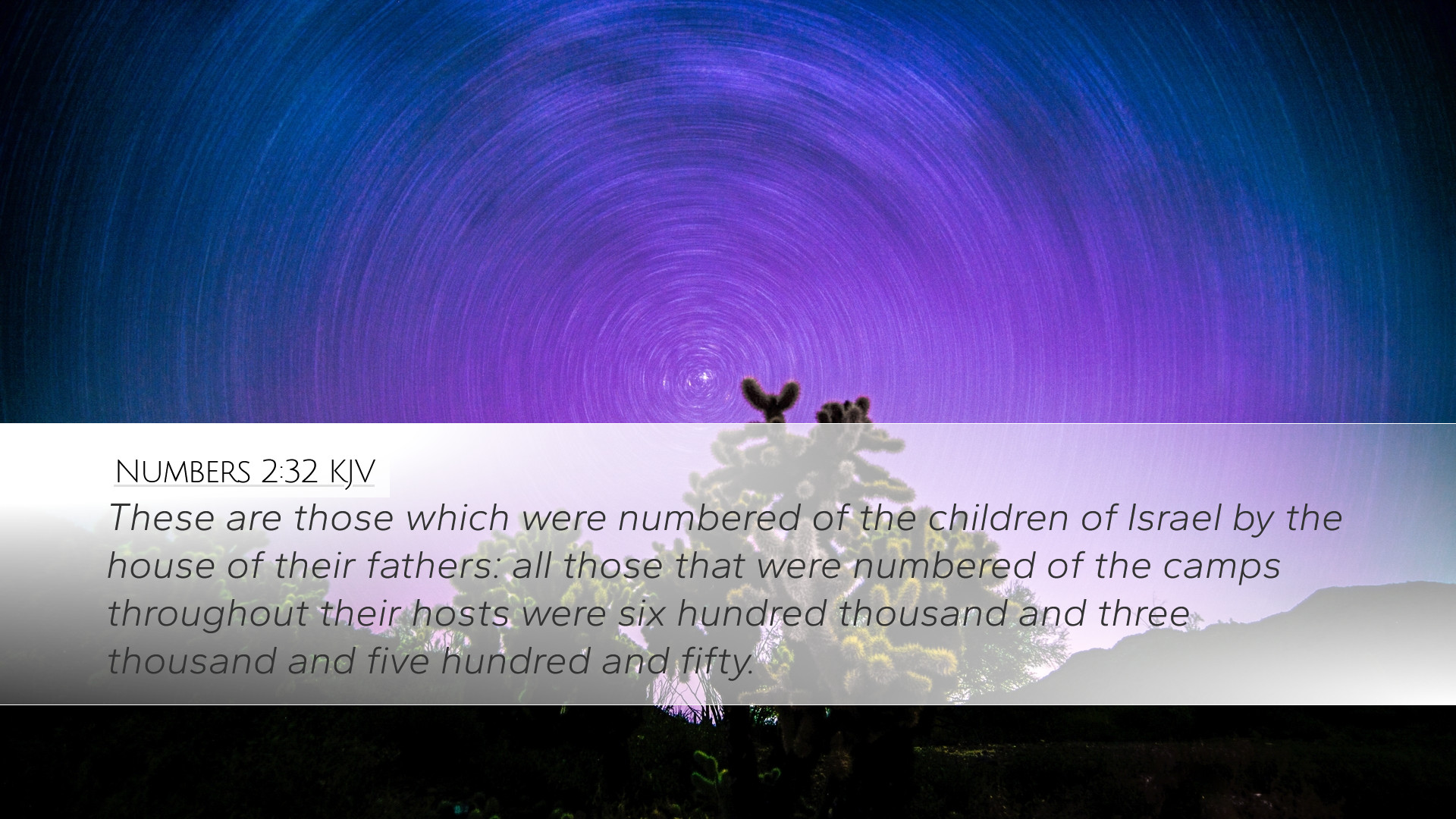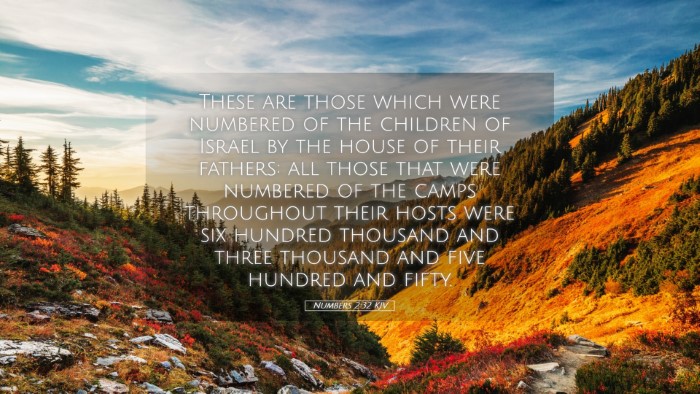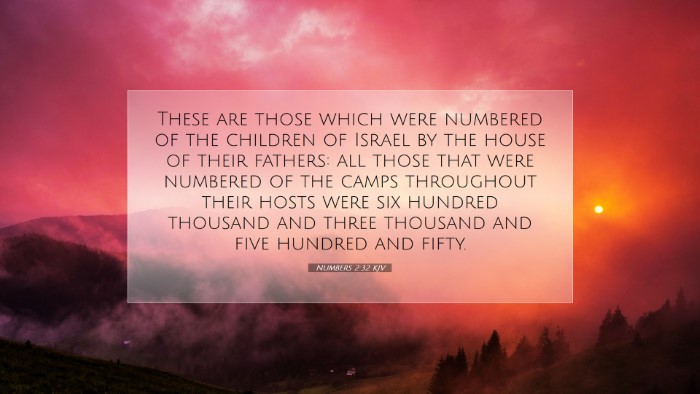Commentary on Numbers 2:32
Bible Verse: Numbers 2:32 - "These are the ones counted of the children of Israel by their fathers' houses. All who were counted according to their armies of the forces were six hundred and three thousand five hundred and fifty."
This verse concludes the census of the children of Israel as laid out in the second chapter of Numbers. Here, a total of 603,550 Israelite men are identified as being able to go forth to war, providing a significant insight into the organization and military readiness of the encamped tribes. Below, we will explore the implications of this verse through the lenses of several public domain commentaries.
Insights from Matthew Henry
Matthew Henry emphasizes the systematic nature of God’s people, noting how they are organized according to their tribes. Each tribe's contribution to the overall number highlights the unity of the Israelites yet showcases their distinct identities.
- He points out that the counting serves multiple purposes, including preparation for military action and for establishing order in the camp.
- Henry also remarks on the divine providence in how God arranges His people, marking that not one of the tribes is absent from the count.
- Another significant observation he makes is the emphasis on the numbers themselves. The large army reflects God's promises to Israel regarding their multiplication and strength.
Insights from Albert Barnes
Albert Barnes provides a historical context for this census. He suggests that the numbering is not merely an administrative task but rather a declaration of God's fulfilled promises to Abraham and Jacob regarding the progeny of their descendants.
- Barnes notes that this specific number of 603,550 should be understood as an indication of Israel’s vitality as a nation, emphasizing the notion of a people ready to enter into the Promised Land.
- He also highlights the division of the tribes, signifying that each tribe had its appointed role and place among the community. This organization foreshadows future battles and the leadership required for their conquest.
- Furthermore, he observes the distinctiveness and the call to individual tribes, noting God’s understanding of each tribe's unique characteristics and contributions.
Insights from Adam Clarke
Adam Clarke's commentary focuses on the implications of the military readiness of the Israelites, suggesting that the census reflects not just numbers but the divine favour and blessings upon Israel as they prepare for conquest.
- Clarke delves into the significance of being organized into battle formations and the importance of such preparation for the journey ahead.
- He also examines the spiritual implications of such a count, urging readers to see that all is done under divine command and purpose, reiterating the sovereignty of God over His people.
- Moreover, Clarke expresses moral reflections from the text, noting how the church today may evaluate its 'numbers' not only in terms of membership but in spiritual vitality and readiness for outreach and mission work.
Theological Implications
The thematic elements found within Numbers 2:32 resonate beyond the initial military context, suggesting several layers of theological reflections for pastors, students, and scholars alike.
- Divine Organization: God’s meticulous care in numbering and organizing His people indicates His desire for order in worship and community life.
- Identity and Community: The tribes, though distinct, are part of a larger unity. This unity mirrors the New Testament's ecclesiological understanding where individual contributions enhance the whole body of Christ.
- Preparation for Mission: The readiness of the Israelites to engage in battle serves as a metaphor for modern believers’ readiness to be equipped for spiritual warfare and missions.
- Fulfillment of Promises: The very existence of a great multitude serves as a testimony to God's faithfulness in keeping His covenant promises.
Conclusion
Numbers 2:32 encapsulates more than just a numerical assessment of Israel's readiness. It serves as a profound reminder of God's faithfulness, His divine order, and preparation that He orchestrates for His people. Through a careful examination of commentaries, we gain insights that acknowledge not only the historical and organizational aspects but also the theological richness essential for the church today.
As readers and scholars engage with this text, may they find encouragement in the knowledge that, like the Israelites, they too have been called and equipped for the purposes of God in their unique contexts.


